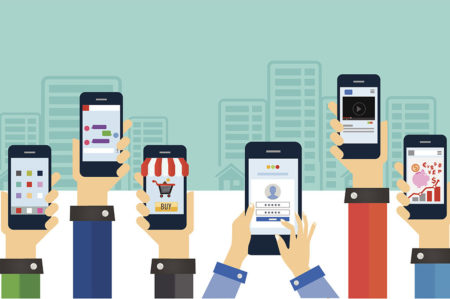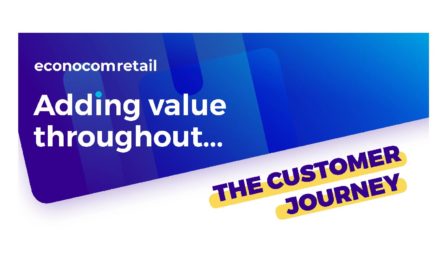
Usage economy is a term we are hearing more and more often. Some call it “economy of functionality”, while others call it “service economy” or “circular economy” but all refer to a change in consumer behaviour that affects and disrupts the economy as a whole. The use of a good has become the priority, even more so than its purchase. What does this imply? From its history to its concrete definition, this article will allow you to know everything about the economy of use.
We will also look at the opportunities it currently generates.
Usage economy: a bit of history
Although it has become popular in the current context of sustainable development, the term “usage economy” is much older than it seems. It appeared in economic theories as early as the 1970s. It was then called “economy of functionality”.
The economy of functionality refers to a model of society in which economic agents are focused on the function of goods above all else. The utility of a product therefore takes precedence over the product itself. The idea is to conceive and perceive a good as a whole, with all the positive externalities that it can bring us in terms of use.
For a better understanding, this model should be compared with the context of the 1970s, which was characterised by the profound evolution of market economies and the transition to the era of servitization. Some companies then became aware of the societal shift that was taking place and chose to reinvent their business model.
This is how Xerox has become more than just a photocopier vendor: they are now selling photocopier service contracts. Michelin, on the other hand, in addition to selling tyres, decided it’s time to offer a subscription system that includes maintenance and replacement of used tyres. The sale of subscription solutions is therefore gradually replacing the sale of goods outright.
This paradigm shift was noted, in particular, in 2000 by author Jeremy Rifkin (President of the Foundation on Economic Trends in Washington) in his famous book The Age Of Access: The New Culture of Hypercapitalism, Where All of Life is a Paid-For Experience. For him, capitalism is gradually disidentifying itself from ownership in favour of functionality. Information technologies play a major role in this transformation of behaviour, as they help transform products into global services (often with a dematerialised part).
The usage economy resurfaced in 2007, during the Grenelle de l’Environnement, which evoked the term “eco-functionality”. The new norm was then announced: the purchase of a good will be replaced by the purchase of an integrated solution that meets the intended use. So the buyer no longer wants to buy just a car, but wants to buy “mobility” (often with extended and customizable functionalities).
This functional economy should not only increase the satisfaction of customers (who are in fact “users”), but also reduce the consumption of energy resources: an issue that has become a priority today. How can economic growth and sustainable development be reconciled?
The economy of use simply refers to the consumer society that is being built now. Ways of consuming have changed: we now give priority to the use of goods, without seeking to possess them.
To do this, we are increasingly inclined to buy the use of a good for a fixed period of time. Once we no longer need it, or once it is damaged, we return it. This is often done through the use of subscription-based rental solutions.
During its life cycle, the same good is therefore likely to satisfy several users. This logically leads to a reduction in the number of copies produced and contributes to the preservation of natural resources. Contrary to popular belief, value creation is not diminished because the decrease in production activity is offset by the tasks involved in managing the sharing of goods. For example, one must think of all the actions that allow a qualitative follow-up of the product (replacement parts, customer support, logistics, etc.).
The economy of functionality also leads to ensuring greater quality and longevity of the products designed, given the interest in making them last longer (as opposed to the economy of disposables).
In order for this model to work on a business scale, it is essential that leased products are not only qualitative and durable, but also that they are enriched with integrated services: maintenance, replacement, recycling, etc.
How is the economy of functionality a source of opportunity today?
The usage economy model is currently showing great success. We can spontaneously think of businesses that have included a subscription-based system in their offer. The basic idea was for them to better meet the needs of their customers. In this way, “classic” merchants were able to solve problems encountered by their customers while at the same time establishing themselves on their market.
A subscription model, particularly in the automotive and construction industries, is also booming. It is a solution that is fully in line with the economy of use by responding to the need to be able to use an asset without having to pay a large sum to own it.
Moreover, the economy of use is a source of opportunities in both B2C and B2B. These two types of customers share the same desire to focus on the use of the product, while having the possibility of delegating everything else: delivery, repair, replacement… (in short, constraints!).
On the B2B side, the advantages of renting fleets of usable devices (phones, computers, CRM, etc.) are no longer to be demonstrated: it allows you to remain focused on the “core business”, without having to worry about buying them, renewing them and having them repaired. These devices are at the service of profitability. Their management should not waste time for companies.
In short, whether we are a business or a household, we don’t necessarily want to travel miles to look for the good we need or to get it repaired: we only care about how we use it!
To meet these new expectations in terms of consumption, it is important that from now on, goods should be designed according to their functions of use. From the moment they are designed, they must be thought out to bring more to their supplier than if they were simply sold. It is up to each company to make its own calculations to determine where the best business opportunity lies for it: in the sale of a possession or in the sale of a usage solution?
The economy of use is not a total substitute for buying, it complements it. It offers great business prospects to all companies that are becoming aware of this shift in consumer behaviour. This is even more true for sectors where products are likely to evolve very quickly (with new technologies at the forefront, of course).















